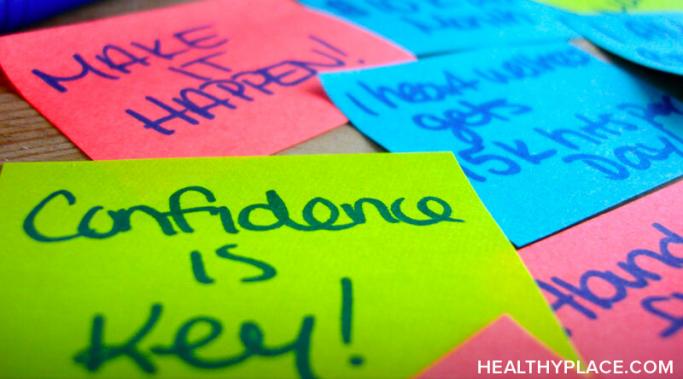We are right on the verge of Thanksgiving and the holiday season. It's such a great time to reflect, not only on the year overall but also on how my ability to cope with my anxiety has progressed. A helpful strategy that I've really taken the time to focus on this year has been practicing gratitude and how feeling thankful has helped me manage my anxiety levels.
Anxiety Symptoms – Treating Anxiety
Staying organized helps my anxiety because one of the things that can be challenging, is dealing with a lack of control. Even though I know that I can't control everything, it becomes difficult when I feel like I am in a chaotic environment. It also becomes overwhelming when situations occur that I don't have control over and so, along with it, comes uncertainty.
Anxiety and self-confidence usually don't coincide with one another, in my experience. I've also found that it is important to find ways to boost my confidence. Otherwise, it is easy to allow my anxiety to overwhelm many aspects of my daily life.
Public speaking is an act that has typically triggered my anxiety. I had to work on it for several years to get to a point where I could manage my public speaking anxiety and anxiety in general.
I've heard a lot about self-sabotaging or being self-destructive when it comes to anxiety, but somewhere along the way, I've convinced myself that I don't do that. I've convinced myself that I don't do things that prevent me from taking advantage of an opportunity or being in line with my goals. Has this been a form of self-sabotage in and of itself? I honestly believe so. Because when I take the time to think about it, I can think of many times in my life when I've purposely taken actions -- or not taken actions -- that weren't consistent with things I have wanted for myself, and anxiety was behind it.
When you deal with anxiety, it's hard to stop yourself from also feeling sad and hopeless. There are a few reasons for this, and for myself, I've found that this has happened to me because dealing with constant anxiety can be extremely exhausting. But I've also found that this has happened to me because the overwhelming feelings and constant worry that go along with anxiety are negative feelings by nature. It's hard to feel positive feelings about anything when you're overcome with anxiety. (Note: This post contains a trigger warning.)
I've found that my mind looks for logic when I'm anxious. In my experience, one of the difficult things about anxiety is dealing with the lack of control that accompanies it, especially when I feel like I can't make sense of what is happening in the situation I am in. When I feel this lack of control, I become completely overwhelmed and feel as though I don't have control over the circumstances within my environment.
Over the years, I have been able to cope with my anxiety much more effectively than I did when I was younger; however, there are still plenty of times when my anxiety has affected my self-worth.
Something I have found about having chronic anxiety is that this often leads to avoiding triggers, which includes avoiding conflict. For example, you might find it difficult to set boundaries in a relationship, or you might find that you've been putting off having a difficult conversation with your supervisor at work. For me, this might look like walking away from arguments or being as diplomatic as possible in an interaction with someone to avoid some sort of conflict.
Not long ago, my therapist asked me to think about my anxiety triggers. I thought about the multiple triggers that lead me to feel anxious, and I realized that one of them is illness, whether it is my own or that of someone I care about.









